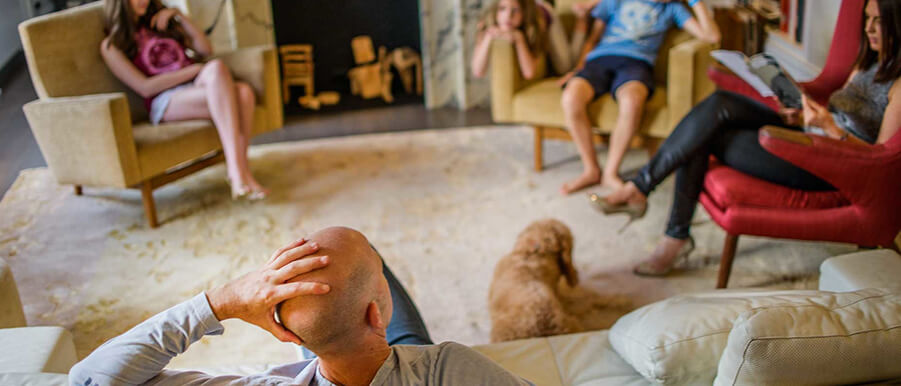 17 Jul 2020
17 Jul 2020
BY: admin
Relationships
How to Talk to Your Children About Racism
How to Talk to Your Children About Racism
After the murder of George Floyd and the 2020 Black Lives Matter protests, all of us have reevaluated our own beliefs and become more aware of how deeply racism still impacts people today. Society is changing, and for many, America feels unstable and, as a result, unsafe.
Parents want nothing more than to give their children a peaceful, prosperous upbringing, but that feels difficult now with social justice and political conversations entering every sphere of life.
Talking to your children about racism is important for several reasons; for small children, it helps combat the development of implicit biases many of us grew up with and had to unlearn. For older children, it gives them a safe environment to ask questions, explore their thoughts and be guided toward an educated worldview.
It’s okay not to have all the answers, but that is not a reason to avoid the topic. By addressing racism at home, you can help your children feel understood, be more inclusive and grow up to be people who are able to stand up for equality and combat racial injustice.
When does racism begin?
Babies become aware of physical differences such as skin color as early as 6 months old. By age 5, children begin to show early signs of racial bias and preferences. This can evolve through a number of ways, including subconscious social conditioning in schools and predominant exposure to only one particular race in the media.
Children are far more aware of racism than parents think; it’s a part of society that they are exposed to at an early age. The goal for parents today should be to teach their kids how to combat racism by modeling and promoting inclusivity and celebrating diversity.
Children Under 5
For preschoolers and kindergarteners, it’s important to adapt to their emerging tendency of noticing differences. As they get older and more vocal, toddlers and young children are likely to ask questions or make observations. The old traditional response to this natural curiosity was to chastise or shush children whenever they pointed out a racial difference.
Although parents likely thought this was disapproving of the behavior, it actually creates a negative connotation with racial openness and curiosity. Rather than seeing diversity as something interesting, children receive the message that it is taboo and different equals bad.
You can create a more inclusive environment at home by introducing your child to more diverse toys and media. For example, buy a White, Black and brown baby doll for them to play with. Watch movies and read children’s books that feature Black, Asian and Hispanic main characters. When they ask questions, provide answers and listen to their thoughts. Focus on fairness and sending the message that we are all wonderful and equal no matter what we look like.
Elementary and Middleschoolers
Children in this age group are likely already familiar with the concept of racism. They may already have heard about it from peers, seen it on news or read headlines online. The internet can be a valuable tool, but it can also expose children to biased, sensitive and even graphic material that they are not yet ready to confront. Rather than being able to analyze and decide whether it’s valuable to them, children tend to perceive everything they read online as fact.
Use the web together to explore various media that discuss racism at an appropriate level. BrainPop is an educational platform that offers free resources to promote an antiracist education. Materials are divided by age and cover both historical events and figures such as Harriet Tubman, Jim Crow, Martin Luther King Jr., slavery and the Black Lives Matter movement.
Teens
Teenagers today are impassioned and politically aligned far earlier than their parents and grandparents were. Talk to them about their views, listen to their concerns and find ways to help them be a safe and peaceful activist. You should also tap into their emotions and ask them how they’ve been handling these events and the feelings they stir up. Anxiety, depression, frustration and fear are all normal and natural responses, but they need to be addressed with care.
Educate Yourself First
You may not even know how to start talking about racism because you have your own questions. The subject is so emotionally charged today that many people want to avoid it altogether. There is no perfect answer or cut-and-dry solution for discussing racism at home, but the best conversations come from a position of education and intellectual curiosity.
Start by reading up on the history of racism yourself. Read material by Black and other minority authors. And address your own stress, frustration and anxiety about the state of the world with people you trust. For some, the best source is a licensed therapist who knows how to guide conversations about difficult or challenging topics.
If you would like personal tips on how to talk to your children about racism, or if you need a safe space to confront your own struggles and concerns, we’re here for you. Contact Caring Heart Counseling today by clicking the button below.

